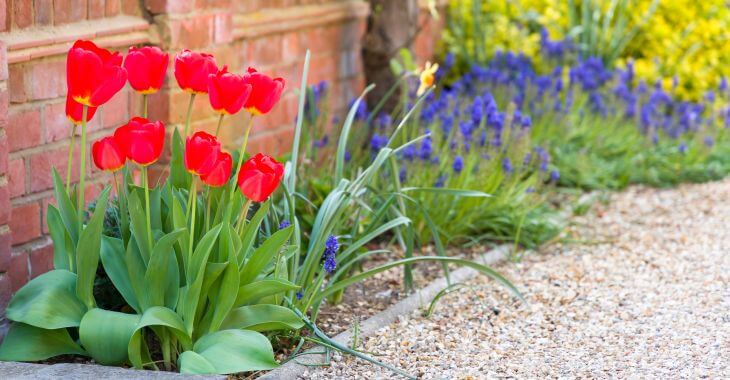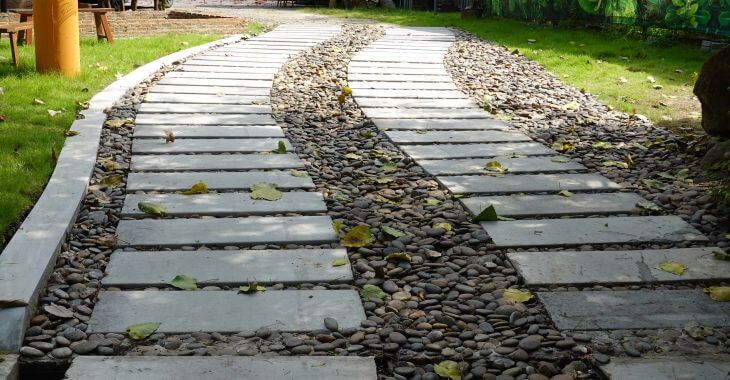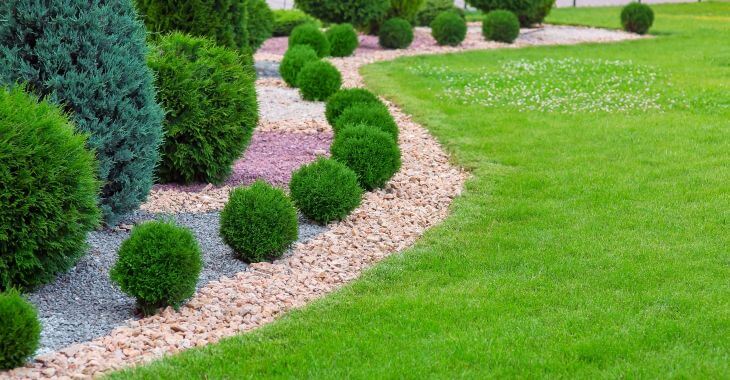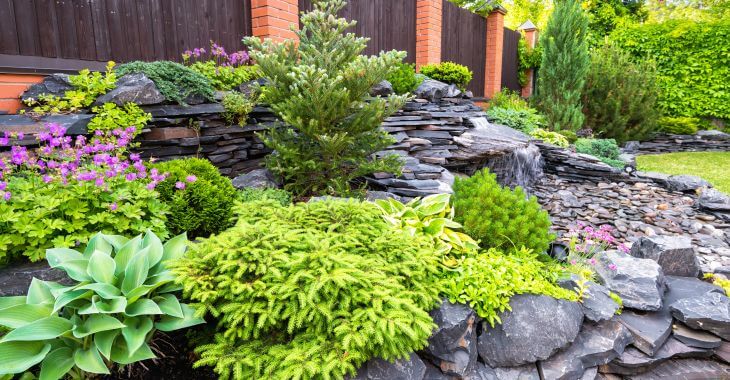Pros and Cons of Gravel Types for Driveways and Landscaping

Gravel is a versatile and cost-effective material commonly used for driveways and landscaping. In this guide, we’ll explore some of the best gravel types for driveways and landscaping and their unique characteristics.
Gravel’s natural appearance, ease of installation, and low maintenance make it a popular choice for both practical and aesthetic purposes. When selecting gravel for driveways and landscaping projects, it’s essential to consider various factors, including the types of gravel and size, color or intended use.
1. Crushed Stone (Crushed Granite, Crushed Limestone)
Crushed stone is one of the most popular choices for driveways and landscaping due to its durability and wide range of available colors and sizes. Common options include crushed granite and crushed limestone.
Pros:
- Excellent durability and longevity.
- Wide range of color options, including earthy tones, gray, and white.
- Ideal for high-traffic areas like driveways.
- Excellent drainage properties.
- Suitable for various landscaping applications, including paths and decorative elements.
Cons:
- It can be more expensive than some other gravel types.
- Size options range from fine to coarse, so choose the appropriate size based on your project needs.
2. Pea Gravel
Pea gravel is characterized by its small, rounded stones that resemble peas. It’s a popular choice for pathways, patios, and landscaping projects where a smooth surface is desired.
Pros:
- The smooth texture is comfortable to walk on.
- Excellent drainage due to its small size.
- Visually appealing and versatile for various landscape designs.
- An affordable option for landscaping.
Cons:
- It is not as suitable for high-traffic areas like driveways, as it can shift and displace under heavy loads.
- Smaller stones can make it challenging to walk in high heels or use wheeled equipment.
3. River Rock
River rock is known for its smooth, rounded stones that are naturally sourced from riverbeds. It’s a popular choice for both landscaping and decorative purposes.
Pros:
- Aesthetically pleasing with a natural appearance.
- Durable and low maintenance.
- Excellent for landscaping accents, water features, and erosion control.
- Provides good drainage.
Cons:
- It is less suitable for driveways due to the rounded shapes, which can create an uneven surface under vehicle weight.
- It may require additional maintenance to prevent weeds from growing between the stones.
4. Decomposed Granite
Decomposed granite, often abbreviated as DG, is a type of crushed stone that has been weathered and broken down into smaller particles. It’s prized for its rustic appearance and is commonly used in landscaping, pathways, and driveways.
Pros:
- Natural and earthy appearance.
- It is excellent for water conservation, as it allows water to penetrate the surface.
- Provides good traction for walking and driving.
Cons:
- It can be dusty when dry, which may require occasional wetting or stabilization.
- It is not as suitable for high-traffic driveways compared to some other options.
5. Marble Chips
Marble chips consist of small pieces of marble stone that are commonly used for decorative landscaping elements, such as pathways, flower beds, and accents.
Pros:
- Elegant and luxurious appearance.
- Various color options, including white, gray, and beige.
- Ideal for enhancing the aesthetic value of landscaping.
Cons:
- It is not suitable for high-traffic areas like driveways, as the chips can break under vehicle weight.
- It may require occasional re-leveling and replenishing due to displacement.
6. Quarry Process (QP) or DGA (Crusher Run)
The quarry process, also known as crusher run or dense graded aggregate (DGA), is a combination of crushed stone and stone dust. It’s commonly used for driveways, as it compacts well, creating a solid surface.
Pros:
- Excellent compaction properties.
- Durable and stable surface for driveways.
- Provides good drainage.
Cons:
- Appearance may not be as visually appealing as some other gravel types.
- It may require regular maintenance to prevent weed growth.
7. Basalt
Basalt is a dense, dark-colored volcanic rock that is often crushed and used as gravel for driveways, pathways, and landscaping.
Pros:
- Durable and resistant to wear and tear.
- Dark color adds a unique aesthetic appeal.
- Excellent for high-traffic driveways.
Cons:
- Limited color options due to its natural dark hue.
- It can be heavier and more challenging to work with compared to lighter-colored gravels.
8. Slate Chips
Slate chips are small, flat pieces of slate stone that come in various shades of gray, green, and purple. They are commonly used for decorative landscaping elements.
Pros:
- Aesthetic appeal with a variety of color options.
- Ideal for creating decorative borders, mulch, or accents in landscaping.
- Low maintenance.
Cons:
- Not suitable for high-traffic areas like driveways due to the flat and potentially slippery surface.
- It may be prone to breaking under heavy loads.
The best types of gravel for driveways include:
- Quarry Process (QP) or DGA (Crusher Run)
- Crushed Stone
- Decomposed Granite
- Basalt
The best types of gravel for landscaping include:
- Pea Gravel
- River Rock
- Marble Chips
- Slate Chips

Selecting the best types of gravel for driveways or landscaping depends on your specific needs, budget, and aesthetic preferences. It’s essential to consider factors such as durability, drainage, appearance, and intended use when making your choice.
Proper installation and maintenance are key to ensuring the longevity and functionality of your gravel driveway or landscaping project. Consulting with a landscaping professional or contractor can help you make the best decision for your unique project.

